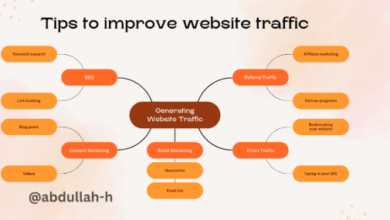The Role of IT Support in Managing Software and Hardware Upgrades

Upgrading software and hardware is a critical step for organizations aiming to remain competitive in today’s fast-moving business environment. These upgrades improve efficiency, enhance security, and keep companies aligned with modern technological standards. However, the process is rarely straightforward. From compatibility checks to data migration, every step carries potential risks that can disrupt operations if not handled professionally. Businesses that rely on IT support in Atlanta gain access to specialized expertise, ensuring upgrades are carried out smoothly while safeguarding daily productivity and long-term growth.
Why Professional Oversight is Essential
Technology changes rapidly, and outdated systems can quickly become a liability. Delaying upgrades not only reduces performance but also exposes businesses to security vulnerabilities, compliance risks, and reduced functionality. Professional IT support helps organizations address these challenges by implementing structured upgrade strategies that minimize errors and keep systems aligned with business goals. Rather than reacting to problems after they occur, IT experts take proactive steps such as conducting assessments, preparing backup strategies, and ensuring system compatibility before launching upgrades. This structured approach reduces risks that often arise when companies attempt to manage upgrades without professional guidance.
Reducing Downtime and Boosting Productivity
System downtime is one of the biggest concerns for businesses during technology upgrades. Even short interruptions can result in revenue loss, employee frustration, and damaged client trust. IT support services are designed to minimize these risks by planning and executing upgrades with precision. Phased rollouts, comprehensive testing, and proactive monitoring ensure that systems continue running smoothly throughout the transition. The benefits can be seen in the ways IT support services reduce downtime and boost productivity, which shows how professional oversight creates operational consistency. Employees can continue to perform their tasks with minimal disruption, while organizations gain the efficiency and stability of updated systems.
Aligning Upgrades with Business Growth
Upgrades should not simply address immediate concerns but also provide a foundation for future expansion. IT support teams take a forward-looking approach by aligning upgrade strategies with business growth objectives. They evaluate current infrastructure, identify bottlenecks, and recommend scalable solutions that prepare organizations for increasing workloads and market changes. Cloud-based systems, virtualization tools, and advanced networking solutions are just a few examples of technologies that IT support can implement to enhance scalability. The help IT companies provide businesses in scaling with technology shows how professional services ensure that investments made today support long-term success rather than becoming obsolete in just a few years.
Security and Compliance Considerations
Security plays a central role in every upgrade, particularly for organizations that handle sensitive data. Professional IT support ensures that software patches, firmware updates, and hardware replacements are configured in line with industry standards. They also enforce data encryption, access controls, and secure migration practices, preventing vulnerabilities that often arise during poorly managed upgrades. Compliance with regulations is another critical consideration. Many industries require businesses to demonstrate that their systems meet specific security and operational requirements. IT support teams provide the necessary documentation, monitoring, and ongoing checks to ensure businesses remain compliant while adopting new technology.
Conclusion
Managing software and hardware upgrades requires more than installing new programs or replacing equipment. It involves detailed planning, strategic alignment with business goals, and robust security measures. Professional IT support plays an indispensable role in ensuring that upgrades not only enhance current operations but also prepare organizations for future growth. By reducing downtime, boosting productivity, and safeguarding compliance, these services allow businesses to transition into modern technology environments with confidence. For companies aiming to remain agile and secure in a competitive landscape, relying on expert IT support is the most effective way to manage upgrades successfully.





